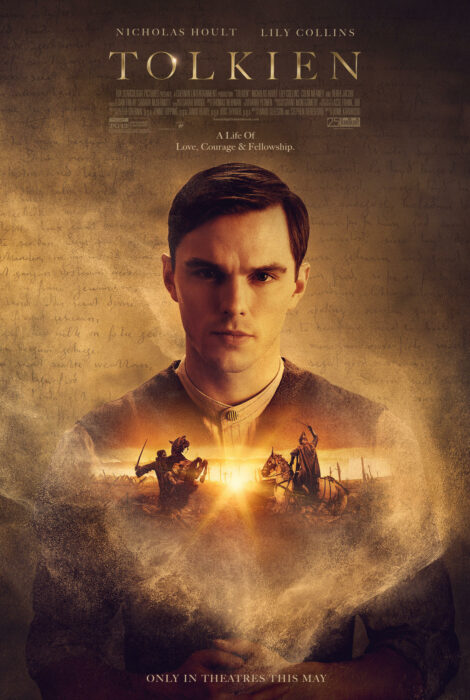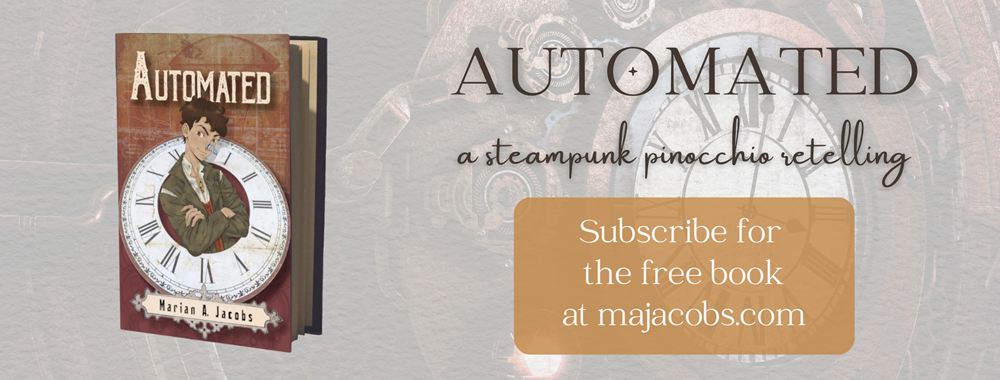The Fellowship of ‘Tolkien’
Many reviews and ranting blogs backed up my newsfeeds in the weeks leading up to the release of Tolkien. Never have I read more fretting, contradictory articles. Yet despite the variety of opinions on the interwebs, one thing is certain: J.R.R. Tolkien is well loved.
From Christian fans, to purist Middle Earth super-geeks, to indifferent LOTR movie goers—John Ronald Reuel Tolkien (played by Nicholas Hoult) has captured the attention of us all. So it wouldn’t seem too much to ask that a biopic film of his early life would do the man justice.
But did it?
I walked into the theater with exceedingly low expectations for the depiction of Tolkien (after hearing through the review grapeview that they’d left out his Christian faith), but with high expectations for film quality. Thankfully, the first expectation was at least partially untrue and the latter quite accurate.
Rumors are misleading in the best of times. The Tolkien-purists had me believing that Catholicism was never even mentioned in the film—and especially not in connection to Tolkien himself. That is not the case at all. Although never explicitly stated, it is clearly implied multiple times that Tolkien is Catholic.
The real issue that should be addressed is that he came across as merely a nominal Catholic instead of devout and faithful. This is still a big blow to Christian fans who feel that separating Tolkien from his faith is akin to removing a heart from its body.
Admittedly, I still enjoyed the film—although I am no purist. Of course it’s too bad they didn’t delve deeper into the importance of Tolkien’s faith. But since the filmmakers themselves are not Christians, this outcome is the best we can hope for. In fact, the Tolkien they placed on the screen was a far cry from a modern, progressive man in his dreams, decisions, and friendships.
In recent years, the entertainment industry has struggled more and more to create more serious works of art in which the male heroes are virtuous rather than slapstick comedians. There’s always a time and place for such comedies, but I have often wondered if it is at the expense of genuine, serious characters.
(Thor’s shift in character after Thor: The Dark World is a prime example. His Ragnarok persona wasn’t necessary had they portrayed his serious side correctly to begin with. That change was a relief to many fans, but I mourned the loss of the original hero.)
Although the filmmakers seemed to miss the root cause of Tolkien’s relationships as faith, they certainly didn’t miss its symptoms: love. Yes, a good portion of the film focused on romantic love, but it also explicitly and beautifully displayed the love he had for his friends. In fact I would go so far as to say that love—for his mother, his wife, his friends—was the theme of this film. Even his interest in language and imagination was secondary.
And it is that non-romantic love between a group of men that is so rarely seen in entertainment today. It’s the kind of camaraderie that says, “I am devoted to you,” without a hint of ego-driven bashfulness and shame.
I won’t try to convince you that Tolkien is everything fans could ask for. It, like most biopics, occasionally deviates from true events. Some will likely hate it while others refuse to see it at all. But I think it gives us one important piece of who he really was—a man of unapologetic love and fellowship so rarely seen in modern storytelling.
Tolkien had many goals throughout his life, but his primary objective in this film was to “change the world” alongside his friends. And thank God he did.































I’m guessing some of the upset regarding the small presence of Tolkien’s faith is due to people perceiving it as a subtle attempt at persecution–which I’m sure is NOT the case at all. What’s more annoying is that they didn’t have him talk anything like the actual Tolkien. It changes the entire feel of his personhood, which is just… kindof silly. Makes me think of “Darkest Hour,” which portrayed Winston Churchill very much like he actually was. Churchill was more of an active public figure (he spoke in front of people more), but still. I think that approach would have been better, though casting and acting and directing it would have been much more challenging (ex. Tolkien was hard to understand because he mumbled–sort of like Churchill, and that made the viewing experience of Darkest Hour in the theatre a bit more difficult). Anyways, nice article, Marian! Thank you for sharing your impression of the film. Makes me want to see it more.
They definitely changed things! The age gap between Tolkien and his wife was never mentioned either. They may have thought it would make it too weird for modern viewers. From an optimistic perspective, they were probably trying to modernize things like his speech and age, etc. and keep other things (friendships, etc.) more primary and authentic.
Yeah, makes sense. Still, people are pretty used to period-pieces these days, so that sounds like a series of less-than-good creative decisions. Then again, I didn’t get millions of dollars of investor money to make a biopic about Tolkien so… shrug and it seems they did a fine job regardless.
For sure. I wouldn’t have done it that way, but I don’t want that to take away from my enjoyment of what was done right.
Part of me’s started to like biography movies and movies ‘based on a true story’ a lot less, partly because of all the little things they tend to miss. If I know a decent bit about the true story, it makes the movies seem a little fake, shallow and annoying, even if I actually do like the film from an entertainment standpoint.
I did like The Imitation Game, though part of me feels like I might be a little disappointed in it if I knew more about the people it was based on.
Thanks for the review!!! I was a bit nervous about going to see it, but now I think I will.